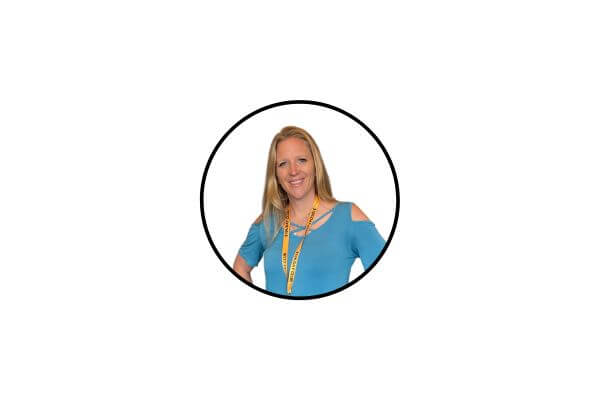I make 70000 a year: How much house can I afford
Inside: This guide will teach you about the different factors you need to consider when purchasing a home with a 70k salary.
There are a lot of factors to consider when you’re trying to figure out how much house you can afford. Your income, your debts, your down payment, and the interest rate on your mortgage all play a role in determining how much house you can afford.
Your situation will be different than the person next-door or your co-coworker.
Making 70000 a year is a great salary. You are making the median salary in the United States.
It’s enough to comfortably afford most homes and gives you plenty of room to save money each month.
But how much house can you actually afford?
It depends on several factors, including your down payment, interest rate, income, and credit score.
In this ultimate guide, we’ll walk you through everything you need to know about how much house you can afford making 70000 a year.

how much house can i afford on 70k
In general, you can expect to spend 28-36% of your income on housing.
Generally speaking, if you make $70,000 a year, you can afford a house between $226,000 and $380,000.
How much mortgage on 70k salary?

In general, you should expect to spend no more than 28% of your monthly income on a mortgage payment.
Thus, you can spend approximately $1633-2100 a month on a mortgage.
Just remember this is relative to the interest rate, term length of the loan, down payment, and other factors.
This post may contain affiliate links, which helps us to continue providing relevant content and we receive a small commission at no cost to you. As an Amazon Associate, I earn from qualifying purchases. Please read the full disclosure here.
Ready to buy a new home or refinance your mortgage?
eMortgage® shops home loans across multiple lenders to help you find a mortgage rate that fits your needs.
28/36 Rule

But there’s one factor that trumps all the others: The 28/36 rule.
Also known as the debt-to-income (DTI) ratio.
The 28/36 rule is a guideline that says that your housing costs (mortgage payments, property taxes, homeowners insurance, and HOA fees) should not exceed 28% of your gross monthly income.
And your total debt (housing costs plus any other debts you have, like car payments or credit card bills) should not exceed 36% of your gross monthly income.
You must follow the 28/36 rule.
How to calculate how much mortgage you can afford?
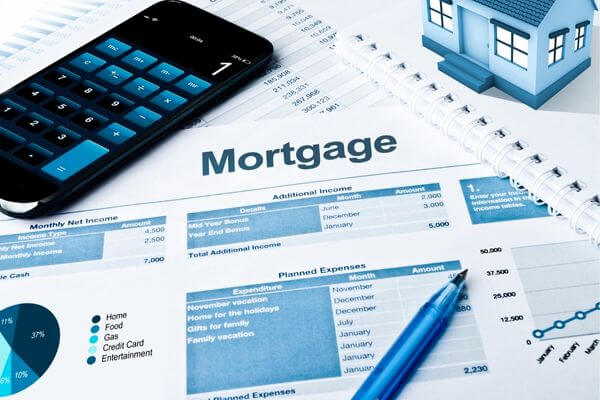
If you’re like most people, you probably don’t know how to calculate how much mortgage you can afford.
This is actually a really important question that you need to ask yourself before beginning the home-buying process.
The answer will help determine the price range of homes you should be looking at. Plus know how much money you’ll need to save for a down payment.
Step #1: Check Interest Rates
Research current mortgage rates to get an accurate estimate. You can also check your credit score and search for average mortgage rates based on your credit score.
Right now, with sky-high inflation, you are unable to afford a bigger house when interest rates are hovering around 6% compared to ultra-low interest rates of 2.5%.
With a 70k salary, this can be the difference between $50-100k on the total mortgage amount you can afford.
Step #2: Use a Mortgage Calculator

Use a mortgage calculator to get an estimate of the home price you can afford based on your income, debt profile, and down payment.
Generally, lenders cap the maximum amount of monthly gross income you can use toward the loan’s principal and interest payment to not more than 28% of your gross monthly income (called the “Front-End” or “Housing Expense” ratio). Then, limit your total allowable debt-to-income ratio (called the “Back-End” ratio) to not more than 36%.
You can use a mortgage calculator to a ballpark range of what house you can afford.
Step #3: Taxes, Insurance, and PMI
When planning for a home purchase, it’s important to factor in all of your monthly expenses, including taxes, insurance, and PMI.
This will ensure that you get an accurate estimate of your home-buying budget based on your household annual income.
Don’t forget to include these payments to get a realistic understanding of your monthly budget.
Step #4: Remember your Living Expenses

When considering how much house you can afford based on your $70,000 salary, you must consider your lifestyle and current expenses.
It is important to factor in other monthly expenses such as cell phone and internet bills, utilities, insurance costs, and other bills.
More than likely, you will be approved for a higher mortgage amount than you would feel comfortable with. This is 100% what lenders will do.
They want to provide you with the most you can afford – not what you should afford.
Step #5: Get prequalified
Prequalifying for a mortgage is an important first step to take when estimating how much house you can afford.
It gives you a more precise figure to work with and helps you make a more informed decision based on your personal situation.
Remember that your final amount will vary depending on several factors, especially your interest rate, which will be based on your credit score.
Taking the time to research current mortgage rates helps you secure a better mortgage rate, giving you more buying power.
Home Buying by Down Payment
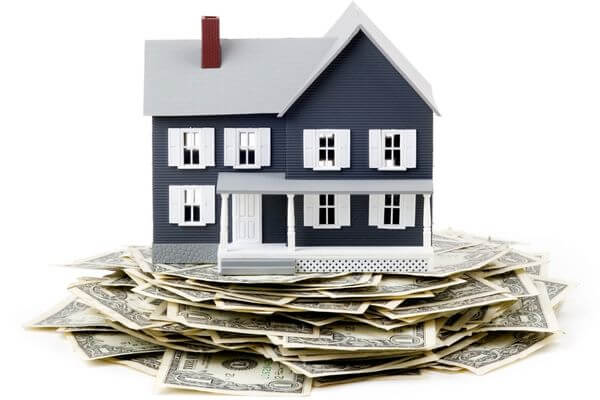
How much house can you afford?
It’s a common question among home buyers — especially first-time home buyers. Use this table to figure out how much house you can reasonably afford given your salary and other monthly obligations.
The assumption is 30 year fixed mortgage, good credit (690-719), no monthly debt, and a 4% interest rate.
| Annual Income | Downpayment | Monthly Payment | How Much House Can I Afford? |
|---|---|---|---|
| $70,000 | $9,552 (3%) | $1,750 | $318,412 |
| $70,000 | $16,215 (5%) | $1,750 | $324,316 |
| $70,000 | $34,058 (10%) | $1,750 | $340,581 |
| $70,000 | $53,573 (15%) | $1,750 | $357,152 |
| $70,000 | $75,094 (20%) | $1,750 | $375,468 |
| $70,000 | $98,933 (25%) | $1,750 | $395,731 |
Mortgage on 70k Salary Based on Monthly Payment and Interest Rate

How much house can you afford on a $70,000 salary?
This largely depends on the current interest rate of the mortgage loan you’re considering. When interest rates are high, people aren’t actively buying as when interest rates are low.
By understanding these factors, you can better gauge how much house you can afford on a $70,000 salary.
The assumption is 30 year fixed mortgage, good credit (690-719), no monthly debt, and a 20% downpayment.
| Annual Income | Monthly Payment | Interest Rate | How Much House Can I Afford? |
|---|---|---|---|
| $70,000 | $1,750 | 3.25% | $406,796 |
| $70,000 | $1,750 | 3.5% | $396,231 |
| $70,000 | $1,750 | 3.75% | $386,101 |
| $70,000 | $1,750 | 4% | $375,994 |
| $70,000 | $1,750 | 4.5% | $357,554 |
| $70,000 | $1,750 | 5% | $339,954 |
Home Affordability Calculator by Debt-to-Income Ratio
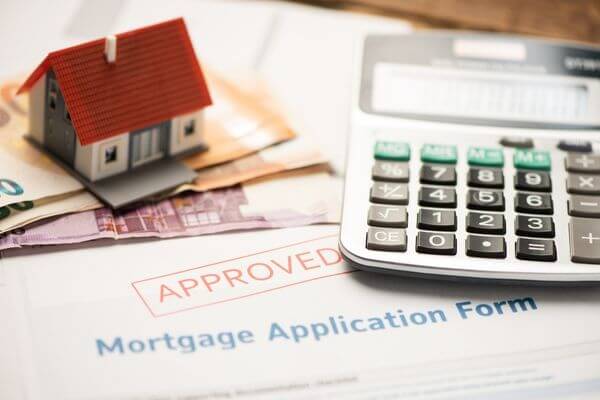
Around here at Money Bliss, we always stress that debt will hold you back.
In the case of buying a house, debt increases your DTI ratio.
Here is a glimpse at what monthly debt can cause your debt-to-income (DTI) ratio to increase. Thus, making the house you want to buy to be more difficult.
| Annual Income | Monthly Payment | Monthly Debt | How Much House Can I Afford? |
|---|---|---|---|
| $70,000 | $2,100 | $0 | $440,085 |
| $70,000 | $1,900 | $200 | $404,584 |
| $70,000 | $1,800 | $300 | $382,334 |
| $70,000 | $1,600 | $500 | $337,883 |
| $70,000 | $1,350 | $750 | $282,208 |
| $70,000 | $1,100 | $1000 | $226,582 |
Increase your Home Buying Budget

Here are a few ways you can increase your home buying budget when buying a house on a $70k annual income.
By following these steps, you can increase your home buying budget and find a more suitable house for your income.
1. Pick a Cheaper Home
Home prices vary significantly in different parts of the country.
Moving out of a major metropolitan area with notoriously high housing costs can help you find more affordable homes.
There are plenty of ways to find a home that is cheaper than you would normally expect.
- Look for homes that are for sale in less desirable neighborhoods.
- Find homes that are for sale by owner or have not been listed yet.
- Check for homes that are for sale outside of your usual price range and haven’t sold as they may drop their price.
- Move to a lower cost of living area.
2. Increase Your Down Payment Savings

A larger down payment can reduce the amount you have to finance, which lowers your monthly payment.
Plus helps you get a lower interest rate and avoid paying PMI.
Putting down at least 10-20 percent of the home sale price can help boost your home buying power. You can also take advantage of down payment assistance programs in your area.
3. Pay Down Your Existing Debt
Paying down your debts such as credit card debts or auto loans can help raise your maximum home loan.
Paying down your debts can help you qualify for a higher loan amount.
This is because when you have lower amounts of debt, your credit score is higher and your debt-to-income ratio is less. This means you are less likely to be rejected for a home loan.
4. Improve Your Credit Score
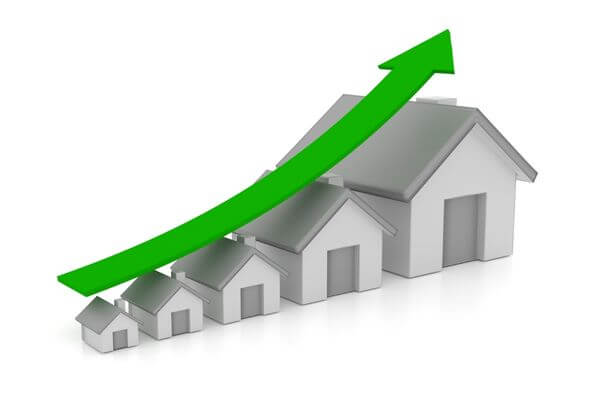
A higher credit score can lead to lower rates and more affordable payments.
You can improve your credit score by:
- Paying your bills on time
- Paying down your credit card balances
- Avoiding opening new credit before applying for a mortgage
- Disputing any errors on your credit report
This is very true! We had an unfortunate debt that wasn’t ours added to our credit report right before closing. While the debt was an error, it still cost us a higher interest rate and forced us to refinance once the credit report was fixed.
5. Increase Your Income
Asking for a raise, seeking a higher-paid position, or starting a side gig can help you increase the amount of home you can afford.
While you need two years of income from a side gig or your own online business to count as income, the extra cash earned helps you to increase the size of your downpayment. Plus it lowers your debt-to-income ratio with the savings you are setting aside.
What factors should you consider when deciding how much you can afford for a mortgage?

How much house can you afford on your current salary and with your current monthly debts?
This is a question that we are often asked, and it’s one that we love to answer.
We’ll walk you through all the different factors that go into this decision so that you can make an informed choice.
1. Loan amount
The loan amount is a key factor that affects the total cost of a mortgage.
If you have no outstanding debt, a 20% down payment, a high credit score, and a 3.5% interest rate from an FHA loan, you could be able to afford up to $508,000.
However, if you have debt, a smaller down payment, or a lower credit score, the loan amount you can qualify for will be lower.
Similarly, if you choose a 15-year fixed-rate loan, your monthly payments will be higher, but you will end up paying less in interest over the life of the loan than with a 30-year fixed-rate loan.
Ultimately, your loan amount will affect the total cost of your mortgage, so it’s important to consider all the factors when making your decision.
2. Mortgage Interest rate
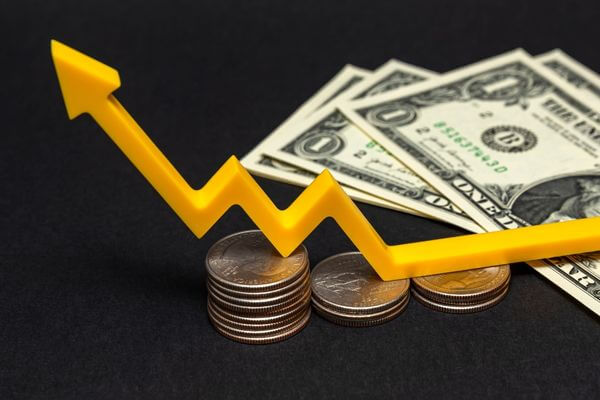
Mortgage interest rates can have a significant impact on the cost of a mortgage. The higher the interest rate, the more expensive the loan will be.
For example, a difference between a 3% and 4% interest rate on a $300,000 mortgage is more than $150 on the monthly payment.
Remember, in the first few years of a mortgage, the majority of the payment goes toward interest rather than trying to reduce the principal amount.
3. Type of Mortgage
The primary difference between a fixed and variable mortgage is the interest rate and the amount of your payment
- Fixed-rate mortgages offer the stability of having the same interest rate for the life of the loan.
- Adjustable-rate mortgages (ARMs) come with lower interest rates to start, but those rates can change over the life of the loan. ARMs are often a riskier choice, as if the economy falters, the interest rate can go up.
Fixed-rate loans are typically the most popular choice, as the monthly payment amount is more predictable and easier to budget for. The terms of a fixed-rate loan can range from 10 to 30 years, depending on the lender.
Adjustable-rate mortgages (ARMs) have interest rates that can increase or decrease annually based on an index plus a margin. ARMs are typically more attractive to borrowers who plan on staying in the home for a shorter period of time, as the lower initial interest rate can make the payments more manageable.
The Money Bliss recommendation is to choose a 15-year fixed-rate mortgage.
4. Property value

Property value can have a direct effect on how much you can afford for a mortgage.
As the value of the property increases, so does the amount of money you will need to borrow to purchase it. This, in turn, affects the monthly payments and the amount of interest you will pay over the life of the loan.
This is especially important as many people have been priced out of the market with the rising home prices.
Additionally, higher property values can mean higher taxes, which will add to the amount you need to budget for your mortgage payments.
5. Homeowner insurance
Homeowner’s insurance is a requirement when securing a loan and it can vary depending on the value and location of the home.
Additionally, certain areas that are prone to natural disasters or are located in densely populated areas may have higher premiums than other locations and may require additional insurance like flood insurance.
As a result, lenders typically require that you purchase homeowners insurance in order to secure a loan, and may have specific requirements for the type or amount of coverage that you need to purchase.
Before committing to a mortgage, it is important to consider the cost of homeowner’s insurance and make sure it fits into your budget.
This is something you do not want to skimp on as the cost to replace a home is very expensive.
6. Property taxes

Property taxes are calculated based on the value of a home and the tax rate of the city or county where the property resides.
The higher the property taxes, the more you will have to pay in your monthly mortgage payment.
In states with high property taxes, the property tax bill can be a large sum of the mortgage payment.
It is important to consider these costs when comparing different homes and locations to ensure you can afford the home without stretching your budget too thin.
7. Home repairs and maintenance
It’s important to also consider other factors such as the age of the house, since some properties may require renovation and repairs that can cost more than the house price itself.
Beyond the cost of purchasing a home, homeowners will likely have other expenses related to owning and maintaining the property.
Also, many homeowners prefer to do significant upgrades to the home before moving in, which comes at an additional expense.
These can include ordinary expenses such as painting, taking care of a lawn, fixing appliances, and cleaning living spaces, which can add up.
Additionally, it’s advisable to buy a home that falls in the middle of your price range to ensure you have some extra money for unexpected costs, such as repairs and maintenance.
8. HOA or Homeowners Association Maintenance

This is often an overlooked factor by many new homebuyers, but extremely important as some HOAs add $500-800 per month to the total housing budget.
The purpose of a homeowners association (HOA) is to establish a set of rules and regulations for residents to follow as well as maintain the community or building.
These fees are typically used to pay for maintenance, amenities, landscaping, and concierge services.
HOA fees are used to finance community upkeep, including landscaping and joint space development, and can range from $100 to over $1,000 per month, depending on the amenities in the association.
9. Utility bills
When switching from renting to buying a home, you will have to factor in the costs of your monthly utility bills such as electricity, natural gas, water, garbage and recycling, cable TV, internet, and cell phone when calculating how much mortgage you can afford.
In addition, the larger the home, the higher the costs to heat and cool your new home.
Make sure to ask your realtor for previous utility bills on the property you are interested in.
10. Private Mortgage Insurance

The purpose of private mortgage insurance (PMI) is to protect the lender in the event of foreclosure. It is typically required when a borrower is unable to make a 20% down payment on a home purchase.
PMI allows borrowers to purchase a home with less upfront capital but also comes with additional monthly costs that are added to the mortgage payment. These fees range from 0.5% to 2.5% of the loan’s value annually and are based on the amount of money put down.
PMI can also be canceled or refinanced once the borrower has achieved 20% equity in the home or when the outstanding loan amount reaches 80% of the home’s purchase price.
11. Moving costs
Moving is expensive, but also a pain to do. So, consider the moving costs associated with relocating from one location to another.
Typically fees for packing, transportation, and possibly storage, and can vary depending on the size of the move and the distance the move needs to cover.
Also, consider if by buying a home, you will stop having moving costs associated with moving from rental to rental.
Ready to buy a new home or refinance your mortgage?
eMortgage® shops home loans across multiple lenders to help you find a mortgage rate that fits your needs.
FAQ

What House Can I Afford on 70k a year?

As a borrower, you need to consider the interest rate, down payment, credit score, debt-to-income ratio, employment history, and loan term when determining how much house you can afford.
A higher credit score can often mean a lower interest rate, and a larger down payment can bring down the monthly payments.
All of these factors can have an effect on the amount of money you can borrow and the home you can afford.
Ultimately, understanding the impact of different factors can help borrowers make the best decisions when it comes to getting a mortgage.
Now that you know how much house you can afford, it’s time to start saving for a down payment.
The sooner you start saving, the sooner you’ll be able to move into your dream home. But you may have to wait if you are considering a mansion.
By taking into consideration this guide into account, you can make a more informed decision about the cost of a mortgage for your new home.
It may take a couple of months to budget when planning to get a house.
Did the post resonate with you?
More importantly, did I answer the questions you have about this topic? Let me know in the comments if I can help in some other way!
Your comments are not just welcomed; they’re an integral part of our community. Let’s continue the conversation and explore how these ideas align with your journey towards Money Bliss.



